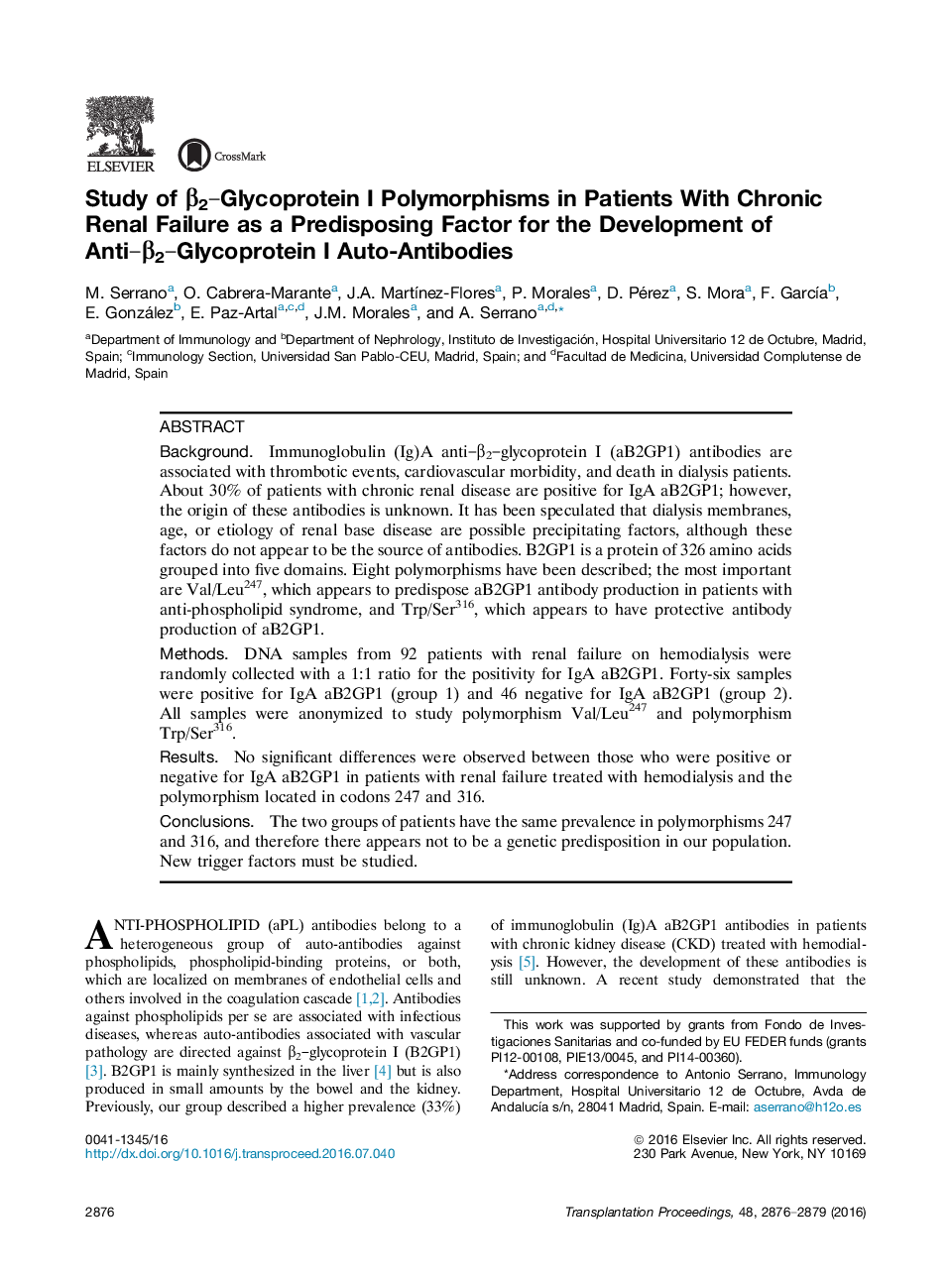| Article ID | Journal | Published Year | Pages | File Type |
|---|---|---|---|---|
| 5728981 | Transplantation Proceedings | 2016 | 4 Pages |
â¢B2GP1 polymorphisms are not associated with genetic predisposition to develop IgA aB2GP1.â¢It could be interesting to investigate whether the origin of IgA aB2GP1 antibodies is secondary to environmental factors.
BackgroundImmunoglobulin (Ig)A anti-β2-glycoprotein I (aB2GP1) antibodies are associated with thrombotic events, cardiovascular morbidity, and death in dialysis patients. About 30% of patients with chronic renal disease are positive for IgA aB2GP1; however, the origin of these antibodies is unknown. It has been speculated that dialysis membranes, age, or etiology of renal base disease are possible precipitating factors, although these factors do not appear to be the source of antibodies. B2GP1 is a protein of 326 amino acids grouped into five domains. Eight polymorphisms have been described; the most important are Val/Leu247, which appears to predispose aB2GP1 antibody production in patients with anti-phospholipid syndrome, and Trp/Ser316, which appears to have protective antibody production of aB2GP1.MethodsDNA samples from 92 patients with renal failure on hemodialysis were randomly collected with a 1:1 ratio for the positivity for IgA aB2GP1. Forty-six samples were positive for IgA aB2GP1 (group 1) and 46 negative for IgA aB2GP1 (group 2). All samples were anonymized to study polymorphism Val/Leu247 and polymorphism Trp/Ser316.ResultsNo significant differences were observed between those who were positive or negative for IgA aB2GP1 in patients with renal failure treated with hemodialysis and the polymorphism located in codons 247 and 316.ConclusionsThe two groups of patients have the same prevalence in polymorphisms 247 and 316, and therefore there appears not to be a genetic predisposition in our population. New trigger factors must be studied.
